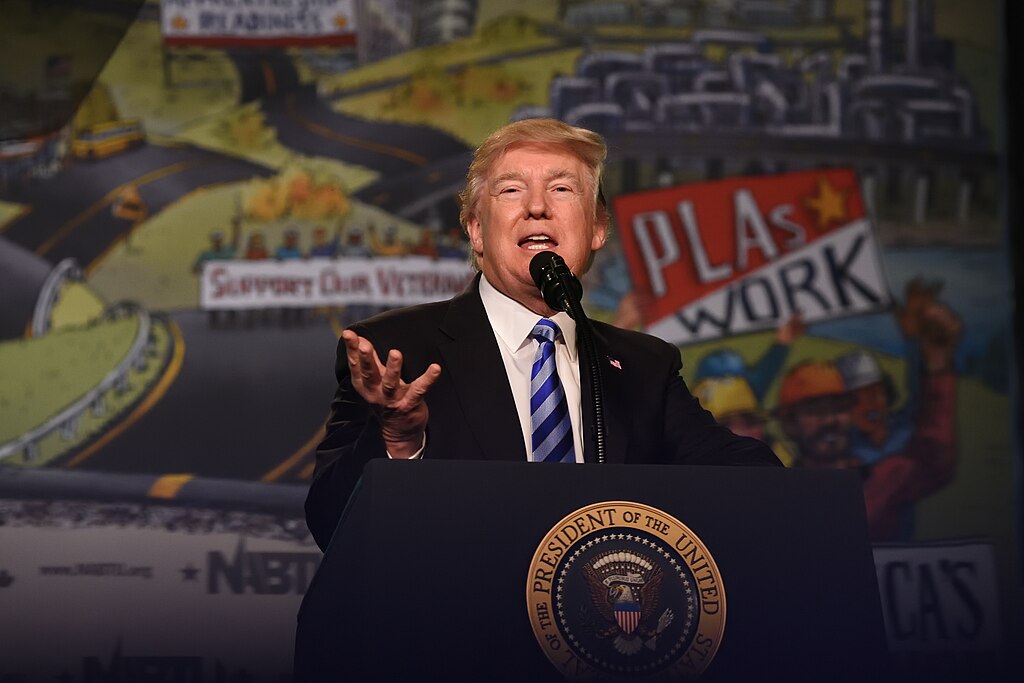Former President Donald Trump recently voiced tentative support for Robert F. Kennedy Jr.'s pledge to remove fluoride from public water supplies, a proposal that has sparked significant debate and drawn criticism from public health experts. The comment was made during a media appearance in which Trump was asked about Kennedy’s stance on fluoride, a topic that has long been controversial within certain health and environmental circles.
“Sounds OK to me,” Trump said, adding fuel to a topic that has raised eyebrows across the political spectrum. Trump’s remarks align him, at least nominally, with Kennedy on an issue that has historically polarized health professionals and policy makers. Kennedy, a former Democrat who is now running as an independent candidate in the 2024 presidential race, has promised to prioritize removing fluoride from drinking water, a stance rooted in his belief that it may have negative health impacts.
The U.S. Centers for Disease Control and Prevention (CDC) and the American Dental Association (ADA) maintain that fluoride in public water supplies is safe and effective in reducing tooth decay. For decades, public health agencies have endorsed water fluoridation as a low-cost measure to improve oral health, particularly in communities with limited access to dental care. However, Kennedy has positioned his stance as one of “health freedom,” arguing that people should have the right to choose whether they consume fluoridated water.
Public health experts have been quick to criticize both Kennedy’s proposal and Trump’s apparent openness to it, emphasizing the extensive body of research supporting water fluoridation’s safety and benefits. “This is an evidence-based public health measure,” said Dr. Allison McGill, a professor of public health at Johns Hopkins University. “Statements like these undermine decades of research and may cause unnecessary fear about something that’s actually protective for communities, especially for children.”
Critics argue that the anti-fluoride stance has long been fueled by misinformation and conspiracy theories, often citing dubious studies that suggest fluoride is harmful. Despite the consensus among major health organizations, opponents, including Kennedy, have pointed to studies linking high levels of fluoride to various health concerns. These studies, however, are often criticized for lacking robust methodologies or for focusing on fluoride levels far higher than those typically used in municipal water systems.
Some political analysts believe Trump’s comment was a strategic nod to Kennedy’s base, which includes voters wary of government-mandated health policies. “Trump knows how to appeal to groups that feel disenfranchised by mainstream politics, and his willingness to entertain anti-fluoride ideas may resonate with certain segments of Kennedy’s supporters,” one analyst noted.
While it remains unclear if Trump would adopt Kennedy’s anti-fluoride stance as part of his own policy platform, his casual endorsement has already triggered reactions among both supporters and detractors. As the 2024 election season heats up, candidates’ views on health and safety policies are expected to play a significant role in shaping voter sentiment, particularly on issues with longstanding public debate.



 Trump Lifts 25% Tariff on Indian Goods in Strategic U.S.–India Trade and Energy Deal
Trump Lifts 25% Tariff on Indian Goods in Strategic U.S.–India Trade and Energy Deal  Missouri Judge Dismisses Lawsuit Challenging Starbucks’ Diversity and Inclusion Policies
Missouri Judge Dismisses Lawsuit Challenging Starbucks’ Diversity and Inclusion Policies  Norway Opens Corruption Probe Into Former PM and Nobel Committee Chair Thorbjoern Jagland Over Epstein Links
Norway Opens Corruption Probe Into Former PM and Nobel Committee Chair Thorbjoern Jagland Over Epstein Links  Ohio Man Indicted for Alleged Threat Against Vice President JD Vance, Faces Additional Federal Charges
Ohio Man Indicted for Alleged Threat Against Vice President JD Vance, Faces Additional Federal Charges  Trump Says “Very Good Talks” Underway on Russia-Ukraine War as Peace Efforts Continue
Trump Says “Very Good Talks” Underway on Russia-Ukraine War as Peace Efforts Continue  U.S. Announces Additional $6 Million in Humanitarian Aid to Cuba Amid Oil Sanctions and Fuel Shortages
U.S. Announces Additional $6 Million in Humanitarian Aid to Cuba Amid Oil Sanctions and Fuel Shortages  South Korea Assures U.S. on Trade Deal Commitments Amid Tariff Concerns
South Korea Assures U.S. on Trade Deal Commitments Amid Tariff Concerns  TrumpRx Website Launches to Offer Discounted Prescription Drugs for Cash-Paying Americans
TrumpRx Website Launches to Offer Discounted Prescription Drugs for Cash-Paying Americans  Federal Judge Restores Funding for Gateway Rail Tunnel Project
Federal Judge Restores Funding for Gateway Rail Tunnel Project  U.S.-India Trade Framework Signals Major Shift in Tariffs, Energy, and Supply Chains
U.S.-India Trade Framework Signals Major Shift in Tariffs, Energy, and Supply Chains  India–U.S. Interim Trade Pact Cuts Auto Tariffs but Leaves Tesla Out
India–U.S. Interim Trade Pact Cuts Auto Tariffs but Leaves Tesla Out  Jack Lang Resigns as Head of Arab World Institute Amid Epstein Controversy
Jack Lang Resigns as Head of Arab World Institute Amid Epstein Controversy  US Pushes Ukraine-Russia Peace Talks Before Summer Amid Escalating Attacks
US Pushes Ukraine-Russia Peace Talks Before Summer Amid Escalating Attacks  Pentagon Ends Military Education Programs With Harvard University
Pentagon Ends Military Education Programs With Harvard University  TrumpRx.gov Highlights GLP-1 Drug Discounts but Offers Limited Savings for Most Americans
TrumpRx.gov Highlights GLP-1 Drug Discounts but Offers Limited Savings for Most Americans  China Warns US Arms Sales to Taiwan Could Disrupt Trump’s Planned Visit
China Warns US Arms Sales to Taiwan Could Disrupt Trump’s Planned Visit 































